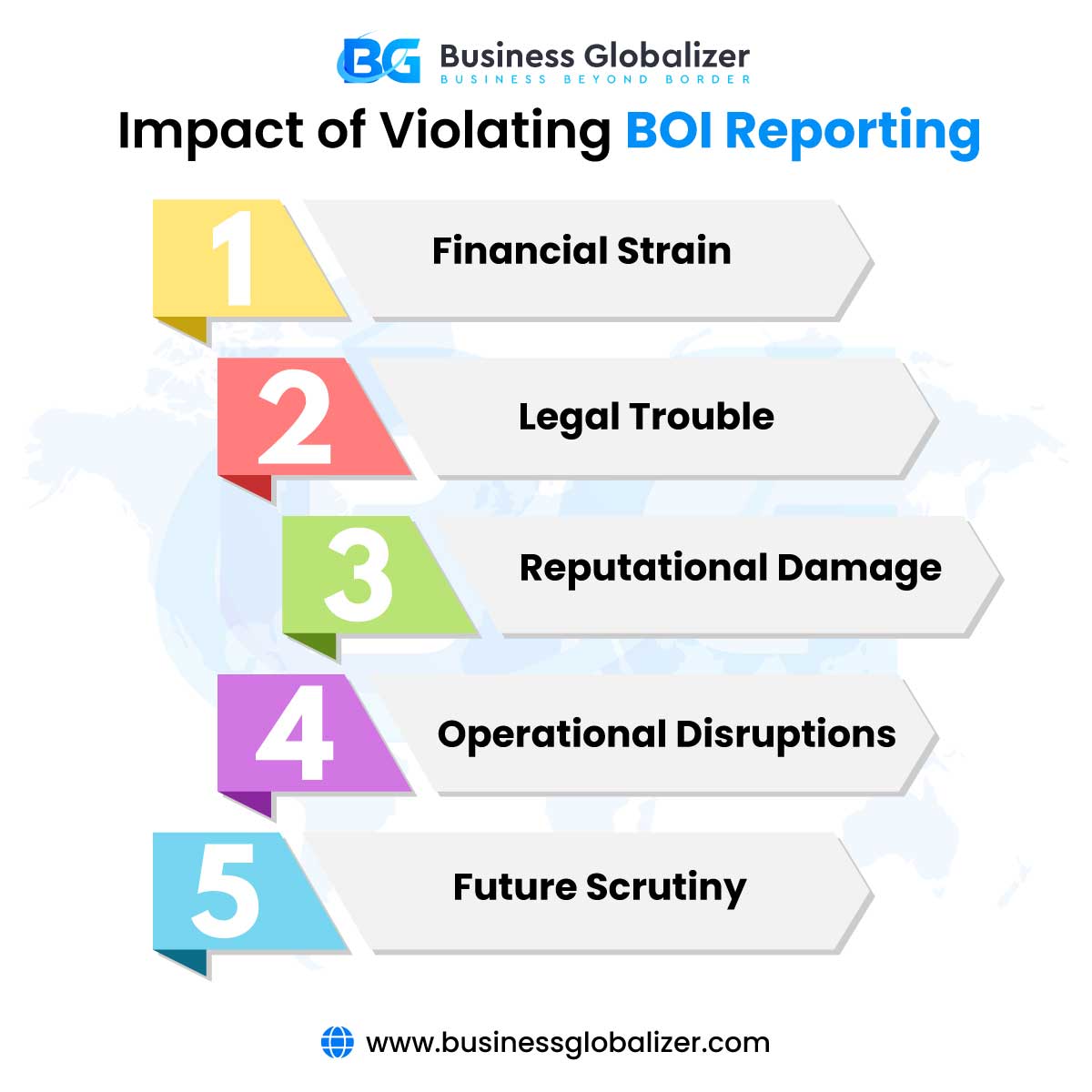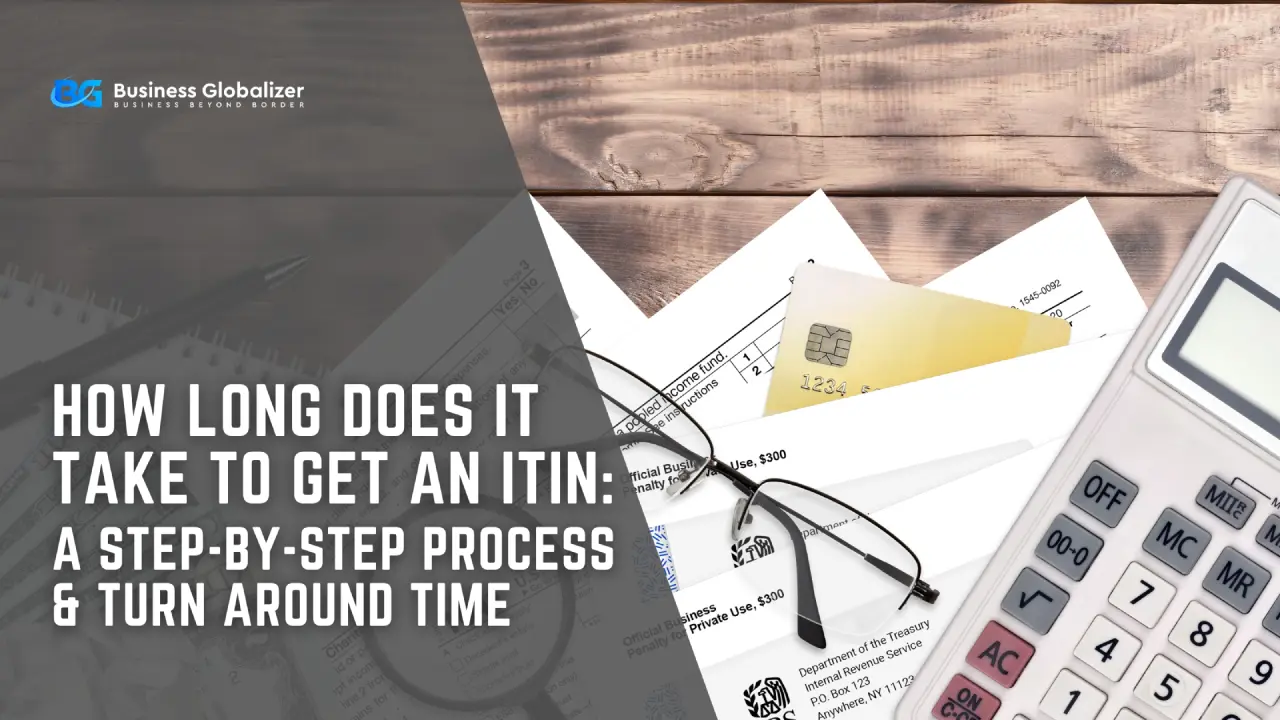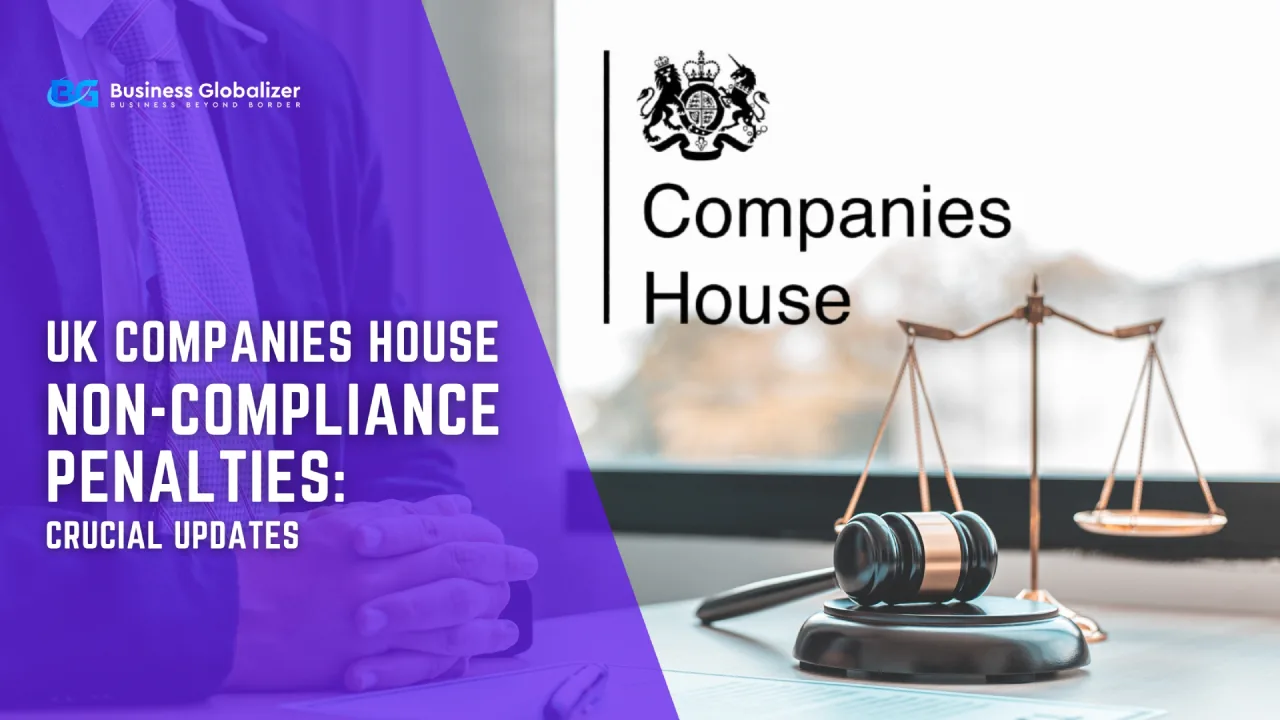Imagine waking up to a big penalty notice from FinCEN hanging over your business. Why? Because you missed reporting crucial Beneficial Ownership Information (BOI).
In today’s financial landscape, understanding and complying with FinCEN BOI reporting requirements are more critical than ever. Failure to do so may result in legal consequences, hefty fines, and reputational damage.
In this guide, we’ll break down the essentials of BOI penalty for non-compliance, equipping you with the knowledge to stay compliant and avoid costly mistakes.
Don’t let ignorance be your downfall. Let’s safeguard your financial future together.
What Is BOI Reporting?
BOI reporting refers to the process of reporting beneficial ownership information to FinCEN, the Financial Crimes Enforcement Network. This information includes details like names, dates of birth, addresses, and identifying numbers (passports, driver’s licenses) of individuals who own or control a significant percentage of a business.
The primary objective of BOI reporting is to increase transparency in the financial system. By knowing who truly owns and controls businesses, authorities can better combat financial crimes like money laundering, terrorist financing, and tax evasion.
In simpler terms, BOI reporting helps ensure that legitimate businesses are conducting legitimate activities.
Why Do I Need to File a BOI Report?
Before learning about the BOI penalty, recognizing the significance of BOI reporting is equally important. Let’s explore deeper into why this reporting requirement matters.
- Compliance Requirement: First and foremost, filing a BOI report is a legal requirement mandated by the Bank Secrecy Act (BSA) and enforced by FinCEN. This requires certain businesses to disclose beneficial ownership information to FinCEN. Serious fines may be imposed for noncompliance.
- Enhance Transparency: BOI reporting enhances transparency in corporate ownership structures. By disclosing beneficial ownership information, businesses contribute to the global efforts to combat financial crimes such as money laundering and terrorism financing.
- National Security: By providing authorities with accurate and up-to-date information about beneficial owners, BOI reporting helps safeguard national security interests by identifying potential threats and vulnerabilities within financial systems.
- Preventing Financial Crimes: BOI reports help financial institutions and law enforcement agencies identify suspicious activities and individuals involved in criminal enterprises, thus safeguarding the integrity of the financial system.
- Reputation Management: Filing BOI reports demonstrates a commitment to ethical business practices and regulatory compliance, enhancing trust and credibility with customers, investors, and other stakeholders.
To put it simply, filing a BOI report isn’t just about ticking boxes. It’s a fundamental step towards ensuring regulatory compliance, promoting transparency, and safeguarding the financial system’s integrity.
When Do I Need to File the BOI Report?
Following up on the importance of BOI compliance, understanding the filing deadlines is crucial. The deadline for filing your BOI report depends on when your business was created or registered.
Here’s a breakdown of when exactly you need to file your BOI report:
- If your business was formed or registered on or after January 1, 2024, you have a 90-calendar-day window from the date you receive notice of your creation or registration’s effectiveness.
- And for businesses in existence before January 1, 2024, you have until January 1, 2025, to submit your initial BOI report.
- But when a reporting company is created or registered on or after January 1, 2025, will have 30 calendar days to file after receiving actual or public notice that its creation or registration is effective.
Remember, these are the initial filing deadlines. Additionally, any changes in beneficial ownership information necessitate prompt action:
- Updated Information: If there are any alterations to your business’s beneficial ownership structure, such as new owners or changes in ownership percentages, you must file an updated BOI report within 30 calendar days of the change.
- Corrections: In the event of errors or missing information in your previously filed BOI report, prompt action is essential. Submit an amended report as soon as possible to ensure accuracy and compliance.
Adhering to these filing deadlines and requirements ensures not only compliance with regulations but also the maintenance of accurate and up-to-date beneficial ownership information for your business.
Which Businesses are Required to File BOI Reports?
Most domestic and foreign businesses must file BOI reports. This includes:
- Corporations
- Limited Liability Companies (LLCs)
- Partnerships
- Trusts or non-profit organizations
Any business entity formed or registered in the United States, including foreign companies doing business in the U.S., is required to comply with these reporting requirements.
BOI Penalty Explained
Let’s face it, missing deadlines or filing inaccurate information is never ideal. Failing to submit a BOI report or filing inaccurate information can lead to significant financial and even legal repercussions.
There are two types of BOI penalties:
- Civil Penalties: FinCEN can impose hefty civil penalties for non-compliance. These are daily fines that add up quickly. As of today, the maximum daily fine is $591 beginning on the 90th day after entity formation.; this amount is adjusted annually for inflation.
So, the longer you delay filing or the longer inaccurate information remains on record, the more it can cost your business. - Criminal Penalties: In addition to civil penalties, individuals who willfully violate BOI reporting requirements may also face criminal penalties.
In cases of willful violations, things get even more serious. If you deliberately avoid filing, knowingly submit false information, or fail to update previously reported information, individuals responsible for filing can face criminal charges.
These BOI penalties for non-compliance can include imprisonment of up to 2 years and fines of up to $10,000.
Remember, staying compliant with BOI reporting protects your business from these costly consequences.
Impact of BOI Penalty
Beyond the immediate sting of BOI penalties, failing to file a report or providing inaccurate information can have a cascading negative impact on your business.
- Financial Strain: The potential for hefty daily fines can quickly drain your business’s resources. Accumulating fines can hinder your financial stability and growth.
- Legal Trouble: Willful violations can lead to criminal charges against responsible individuals. This can involve legal fees, potential jail time, and a permanent criminal record.
- Reputational Damage: News of BOI non-compliance can spread quickly, damaging your business’s reputation for transparency and ethical conduct. This could lead to lost trust with clients, partners, and potential investors.
- Operational Disruptions: Dealing with investigations or legal proceedings related to BOI violations can be a significant distraction. This can divert valuable time and resources away from running your business effectively.
- Future Scrutiny: A history of non-compliance can raise red flags for authorities. This could lead to increased scrutiny of your business activities in the future.
While the financial penalties are significant, the overall impact of BOI non-compliance goes beyond just the dollar signs. It can have long-lasting consequences for your business reputation, operations, and legal standing.

Who Is Liable for BOI Penalty?
Continuing our exploration of BOI penalties and their implications, let’s identify who bears the liability for these penalties:
- Business Entities: In many cases, the primary liability for BOI penalties falls on the business entities themselves. Whether it’s a corporation, partnership, or limited liability company, the entity responsible for filing BOI reports and ensuring compliance with reporting requirements may face penalties for non-compliance.
- Beneficial Owners: Individual beneficial owners of a business entity may also be held liable for BOI penalties under certain circumstances. If a beneficial owner willfully fails to provide accurate information or intentionally submits false information in a BOI report, they may face civil and criminal penalties.
- Officers and Directors: Officers and directors of business entities can be held personally liable for BOI penalties if they are found to have knowingly participated in or facilitated violations of BOI reporting requirements.
This includes cases where officers or directors have willfully disregarded their duty to ensure compliance with regulatory obligations.
How to Avoid the FinCEN BOI Penalty?
Feeling overwhelmed by the prospect of BOI penalties? Take a deep breath. There are practical steps you can take to avoid falling into the BOI penalty trap:
- Understand Reporting Requirements: Take the time to familiarize yourself with BOI reporting requirements applicable to your business. Read relevant guidelines and regulations to make sure you’re aware of what needs to be reported and when.
- Stay Updated: The regulations world can change, and BOI reporting is no exception. To ensure continued compliance, it’s crucial to stay updated on any changes in BOI reporting regulations and deadlines.
Subscribe to regulatory updates, attend training sessions, or consult with legal experts to stay informed about any amendments or additions to reporting requirements. - Establish Compliance Protocols: Implement strong compliance protocols within your organization to ensure timely and accurate BOI reporting. Designate responsible individuals or teams to oversee reporting obligations and conduct regular audits to identify and address any compliance gaps.
- Double-Check Information: Prioritize accuracy when submitting BOI reports. Double-check all information to ensure it’s complete and correct before filing. Review reporting forms and documents meticulously to avoid errors that could trigger penalties.
- Seek Professional Assistance: When in doubt, seek guidance from legal or compliance professionals experienced in BOI reporting matters. They can offer valuable insights and advice to mitigate the risks of BOI penalty.
By following these practical tips and strategies, you can proactively mitigate the risk of incurring BOI penalties and ensure compliance with reporting requirements.
Get Help
If you are feeling overwhelmed with all the information and risks of being fined, we are here. Don’t worry; Business Globalizer will properly handle all the required tasks related to this specific report submission. We have just the right service for FinCEN BOI filing for you to help you stay legally compliant.
FAQs on BOI Penalty
Q1: Can I face penalties for providing false information in a BOI report?
Answer: Yes, willfully providing false information in a BOI report may result in civil and criminal penalties, including fines and imprisonment.
Q2: Who is responsible for filing a BOI report?
Answer: The responsibility primarily falls on the business entity, but individual beneficial owners, officers, directors, and agents may also bear liability for non-compliance.
Q3: What are the potential penalties for failing to file a BOI report or providing inaccurate information?
Answer: Penalties include civil fines of up to $591 per day (from April 18th, 2024), criminal penalties of up to two years of imprisonment and a $10,000 fine, and potential legal ramifications.
Q4: What should I do if I discover errors in a previously filed BOI report?
Answer: Promptly submit an amended report to correct any errors or discrepancies and ensure compliance with reporting requirements.
Last Words…
Still worried? Don’t be! There are numerous third-party service providers like Business Globalizer, available to help you comply with the FinCEN BOI reporting process. By working with a qualified professional, you can free up your resources and ensure your business remains compliant.
Whether you choose to manage BOI reporting internally or seek expert assistance, the choice is yours. Remember, staying compliant is key to protecting your business from the BOI penalty.





